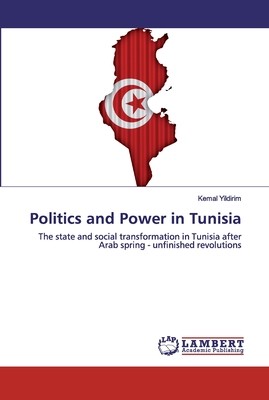
- We will send in 10–14 business days.
- Author: Kemal Yildirim
- Publisher: LAP Lambert Academic Publishing
- ISBN-10: 6202556447
- ISBN-13: 9786202556446
- Format: 15.2 x 22.9 x 0.5 cm, softcover
- Language: English
- SAVE -10% with code: EXTRA
Reviews
Description
The 2010-2011 Tunisian uprisings that took Ben Ali, his feared security apparatus, and his Western Allies by surprise shook the world and presented many mainstream analysts and commentators with a dizzying paradox. How did this politically stable, westernized, highly educated, tolerant, and relatively prosperous society erupt into popular protests that toppled one of the strongest police states in the Arab world, and plunge the entire region into a wave of popular revolts? Only a few weeks before the uprisings began in Tunisia, the World Bank issued its 2010 Country Brief on Tunisia stating: "Tunisia has made remarkable progress on equitable growth, fighting poverty and achieving good social indicators. The report went on to argue that Tunisia has consistently scored above its income category in the Middle East and North Africa average on most dimensions of comparative governance ranking and development indexes. Finally, it concluded with an almost congratulatory statement claiming that Tunisia is far ahead in terms of government effectiveness, rule of law, control of corruption and regulatory quality" (World Bank 2010). This book discovers Political power and state-building.
EXTRA 10 % discount with code: EXTRA
The promotion ends in 7d.00:24:18
The discount code is valid when purchasing from 10 €. Discounts do not stack.
- Author: Kemal Yildirim
- Publisher: LAP Lambert Academic Publishing
- ISBN-10: 6202556447
- ISBN-13: 9786202556446
- Format: 15.2 x 22.9 x 0.5 cm, softcover
- Language: English English
The 2010-2011 Tunisian uprisings that took Ben Ali, his feared security apparatus, and his Western Allies by surprise shook the world and presented many mainstream analysts and commentators with a dizzying paradox. How did this politically stable, westernized, highly educated, tolerant, and relatively prosperous society erupt into popular protests that toppled one of the strongest police states in the Arab world, and plunge the entire region into a wave of popular revolts? Only a few weeks before the uprisings began in Tunisia, the World Bank issued its 2010 Country Brief on Tunisia stating: "Tunisia has made remarkable progress on equitable growth, fighting poverty and achieving good social indicators. The report went on to argue that Tunisia has consistently scored above its income category in the Middle East and North Africa average on most dimensions of comparative governance ranking and development indexes. Finally, it concluded with an almost congratulatory statement claiming that Tunisia is far ahead in terms of government effectiveness, rule of law, control of corruption and regulatory quality" (World Bank 2010). This book discovers Political power and state-building.


Reviews